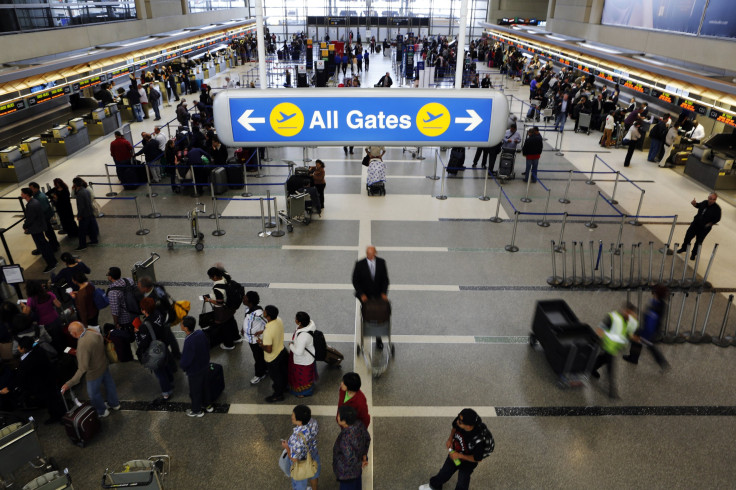Rabbi Goes Up Against Northwest Airlines In Supreme Court Case That Could Shake Up The Aviation Industry Forever

On Tuesday, the Supreme Court of the United States heard the first oral arguments presented in one of the more bizarre cases to be brought before the highest court in the land. Rabbi S. Binyomin Ginsberg has been fighting for his right to sue Northwest Airlines for more than five years, after the airline canceled his Platinum Elite frequent-flier miles because, as he contends, it was trying to get rid of an expensive element of its business before merging with Delta Air Lines Inc. (NYSE:DAL).
Northwest says that Ginsberg had been booking himself onto flights that he knew were fully booked in the hope that he would get bumped and then reap benefits in return. After making 24 complaints in seven months saying his bag arrived late nine times, Ginsberg was awarded more than $1,900 in credit vouchers, more than 78,000 bonus miles, a voucher extension, and $490 in cash. Shortly after, Ginsberg recieved a letter saying that he was being taken out of the program for "abusing" it.
In the complex case, Ginsberg says that by taking away his frequent-flier miles, Northwest was breaching their contract with him. The court quickly dismissed this by saying that it was in fact Northwest’s right under the frequent-flier contract it has with customers to remove them from the program at its discretion. Did Northwest act in bad faith by rejecting him for complaining too much?
“I think what’s at stake is whether airlines can be held accountable if they are found to be acting in bad faith in performing their contracts with customers,” said Adina H. Rosenbaum, Ginsberg's attorney.
However, according to Ginsberg’s lawyers, he and his wife took about 75 flights a year on the airline and complained only 10 percent of the time.
While the case may seem insignificant, the final decision by the justices, expected in June 2014, will have serious implications for the way customers litigate against airlines, which have historically been very well protected by the Airline Deregulation Act of 1978.
The act essentially allows airlines to act independently in the free market, and while the law was designed to bring competition to the industry -- which has now been undermined by huge airline mergers -- it also meant that U.S. states have not been able to adopt their own airline regulations in relation to fares, routes and market entry. This is why, in part, Ginsberg has had to reach out to the Supreme Court for clarification on the law because, as Justice Stephen G. Breyer put it, “A free market in price is at the heart of the Deregulation Act,” and “frequent-flier programs are simply price discounts.”
However, the whole system is further complicated by vast and varied state laws which Northwest’s attorney Paul Clement said were almost unworkable for purposes of the frequent-flier programs.
If Ginsberg succeeds in his case, it will allow him to go back to state court and sue Northwest Airlines, but it will also provide a vehicle for disgruntled air passengers to challenge airlines in court without worrying about the protection offered by the Deregulation Act.
Echoing the views of many travelers was Justice Elena Kagan, who said that it was unfortunate that a simple arrangement had become so complicated.
She said: “I always thought that the way these agreements worked” was that “if I flew a certain number of miles on your plane, I was going to get a free ticket.”
This is not the first time an airline has been at the center of a frequent-flier storm. In 2012 world-renowned celloist Lynn Harrell lost all his frequent-flier miles and an equal amount for his cello, after Delta told Harrell in 2001 that musical instruments could not accrue miles. After Harrell continued to claim them for his cello for another 10 years, Delta shut both accounts.
Harrell always bought an extra seat next to his own seat for his cello because it was too delicate to be placed in checked baggage. For nearly 15 years, his cello collected the miles under “Cello Harrell.”
American Airlines has a similar policy, but United, Alaska Air Inc. (NYSE:ALK) and Deutsche Lufthansa (FRA:LHA) all allow the cello to keep clocking up the miles.
© Copyright IBTimes 2024. All rights reserved.






















